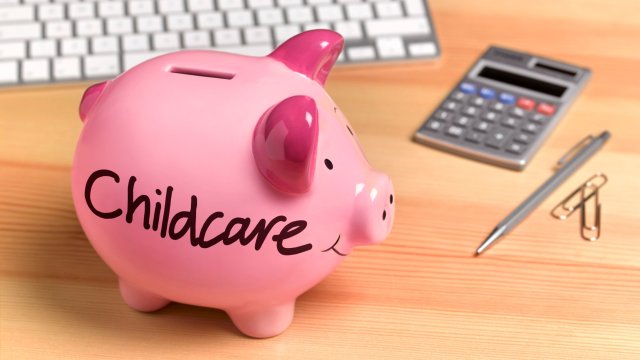Retirees paying rent or mortgage bills need to save £1,500 more a year to fund retirement, experts warn

Savers who expect to retire while still paying rent or mortgage bills need to save about £1,500 more a year to fund their retirement compared to those who are free from housing costs, finance experts have calculated.
First-time buyers are getting on the ladder later in life, mortgages are getting longer and more people are retiring while still paying a mortgage or while renting a property.
The average age of a first-time buyer is now 32, up from 29 a decade ago, according to Halifax, while the data company Moneyfacts said that about 70 per cent of mortgages in the market are now available with 40-year terms, compared to around a third in 2014.
Meanwhile, the English Housing Survey says that roughly a quarter of older households are still paying a mortgage or rent – which has large consequences for how much you might need to save.
Until recently, it was commonly thought that most people would have paid off a mortgage by retirement. The Pension and Lifetime Savings Association (PLSA) provides estimates for how much you might need to fund different levels of retirement, but all assume no housing costs.
Stuart Lewis, chief executive of Rest Less, a community for those aged over 50, said many of its members were facing housing costs beyond state pension age. He said: “It’s becoming increasingly common for people to remortgage into their 70s and 80s, with one key challenge being how the payments will be affordable on a retirement income.”
How much more cash might you need?
To have a “moderate” retirement – which includes £74 a week on food, replacing a car every 10 years, two weeks in Europe plus one long weekend in the UK for holidays and £790 for clothes and shoes – the PLSA suggests that a couple would need to spend £34,000 a year, post-tax and without any housing costs.
In order to get this, you would need a pre-tax combined income of £36,216. If you both have a full state pension, this would give you the first £21,200, and the remainder – £15,016 – would need to come from your personal savings, so £7,508 each.
A couple would both need a pension pot of about £150,000 to get this level of income from age 66 (the current state pension age), according to the wealth manager AJ Bell. This is assuming they had already taken their 25 per cent tax-free cash, 4 per cent investment growth, and inflation of 2 per cent, the Bank of England’s target.
But if the couple still had housing costs of £750 a month (roughly the average, according to the English Housing Survey), they would need to find an extra £9,000 a year, after tax.
Pre-tax, this figure is £11,250, so the amount each person would need to withdraw from their pension pot increases from £7,508 with no housing costs to £13,133 with rent or a mortgage.
According to AJ Bell, the couple with housing costs would need a pension pot worth £270,000 to fund this level of retirement (assuming they had already taken their 25 per cent tax-free cash) — £120,000 more than if they owned a property mortgage-free.
“Paying off your mortgage before retirement comes as a real relief for people,” said Helen Morrissey, from the investment platform Hargreaves Lansdown. “Having to pay rent or a mortgage while retired can cost thousands of pounds a year, and place any budget under severe strain.”
How much more would you need to save?
To fund a “moderate” retirement without any housing costs, a couple would need a pension pot worth £150,000 each after their 25 per cent tax-free cash, so £200,000 in total.
In order to save this amount by age 66, a 30-year-old could start paying a total of £1,900 a year, and increase their contributions by 2 per cent a year as they earn more, AJ Bell said. This figure includes tax relief (20 per cent for a basic-rate taxpayer, 40 per cent for higher-rate and 45 per cent top-rate tax) and any employer contributions, so the amount you actually pay in would be smaller.
If you needed to save for a retirement where you would pay housing costs as well, the figures are larger.
To fund the “moderate” retirement with housing costs, a couple would need a pension pot worth £270,000 each after their 25 per cent tax-free cash, so £360,000 in total.
In order to save this amount by age 66, a 30-year-old could start paying a total of £3,440 a year, increasing this amount by 2 per cent each year. Again, this is the total that would need to be paid, including any tax relief or employer contributions.
This is a difference of £1,500 from those with and without housing costs.
What can you do about it?
If you find yourself retiring with housing costs, there are things you can do to soften the financial strain.
People often consider downsizing to a smaller property if they still have a mortgage. In theory, you can sell off a larger property and see if you can buy a smaller, cheaper house outright, meaning you would be free from mortgage debt. According to Hargreaves Lansdown, 25 per cent of retirees said they were considering doing this.
There are downsides to consider, though. Moving can be costly, and you may be reluctant to leave the area where you have family and friends.
If you want to stay in your property, you could consider equity release. This is a type of mortgage where you take a loan against the value of the house that is not repayable until you move into long-term care or die – the interest “rolls up” and is added to the loan at the end.
According to Key, the UK’s largest equity release adviser, some 27 per cent of those who used equity release last year did so in order to pay off their residential mortgage.
However, this can be a costly option and leave you with significantly less to pass on as an inheritance. If you do go down this road, it is a good idea to discuss it with your loved ones.







